Initiative 83 has passed in D.C. with almost 73% of the vote meaning semi-open primaries and ranked voting are set to begin in 2026.
Before then, the ballot initiative will face more challenges with two lawsuits and the final decision to fund the decision made by D.C. Council.
Deirdre Brown, chair of the Vote No campaign told The Wash on election day, “We’re hoping that they won’t fund it. We don’t believe that this is needed, this is an unnecessary election reform.”
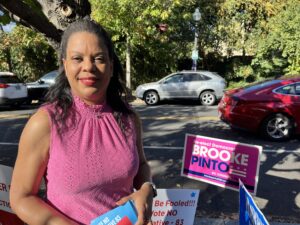
The initiative will allow D.C.’s 76,000 registered independents to vote in a partisan primary election of their choosing. This would open D.C. up in line with other states, as only 14 states and D.C. have closed primaries.
Ruby Coleman, student engagement coordinator of the Vote Yes campaign said this would help many disenfranchised people in the most important election for always democratic D.C. – the primary. She drew attention to federal employees and journalists whose careers may be affected by having a partisan attachment.
“The reason we oppose that is because our Home Rule Act clearly states that our primaries are partisan,” Brown said. She also reminded people that independents can change their party affiliation even on election day if they want to vote.
The second half of the initiative is ranked choice voting – allowing voters to rank up to five candidates, and the lowest performing candidates would be eliminated until a winner receives at least 50% of the vote.
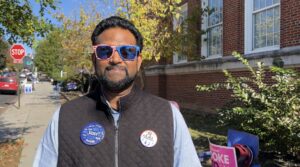
The Vote No campaign said this is a confusing system, and it is more likely that people of color, lower-income voters, and elderly people’s votes won’t count if they fill in the ballot incorrectly.
Kishan Putta, ANC Commissioner said, “All important reforms in American history and world history have taken some time to get used to. I have faith in the voters they have been able to manage and understand lots of complexities in our society. Filing taxes for example, is much more complicated than ranked choice voting.”
An expert in voting rules and electoral systems, Josep Colomer professor of political science at Georgetown University, was voting for Initiative 83 at Hardy Middle School, as it is “less bad than what we have.” He told The Wash the current winner-takes-it-all system of voting in America “is the worst. That is a general opinion among academics all across the world.”
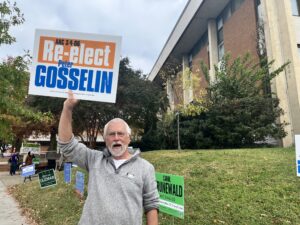
Peter Gosselin speaking outside Chevy Chase Community Center said he can understand ranked voting for races where there are a lot of candidates, but ultimately he voted against the initiative. “Voting is our way of conveying authority,” he said, “think of being the second choice president, it’s a weird way to convey authority.”
There has been controversy surrounding the campaign. “We really believe this has little to do about D.C. voters, and has a lot to do with outside special interest groups and PACs meddling in D.C. politics,” said Brown chair of the Vote No campaign.
Mayor Muriel Bowser who has been publicly against the initiative, said “These groups want to come in and control our local elections,” on WAMU’s The Politics Hour.
Vote No have spent just under $5,300 during their campaign according to the 8 day pre election report, compared to $1.2 million spent by the Yes campaign.

Coleman of the Vote Yes campaign acknowledged they have received “significantly more funding,” from larger organizations like Fair Vote. She said, it “is right over the border in Silver Spring, it’s barely outside D.C.,” and that funding allows them to hire people to work within D.C. on the campaign.
While the Yes campaign will be celebrating today, it is still not a clear path ahead.
Brown said, “This isn’t the end, there are two court cases that are currently challenging the validity of Initiative 83 and we believe at least one of those should prevail in the future.”
Because the initiative has a fiscal impact, it now goes to D.C. Council to decide whether to fund the change.

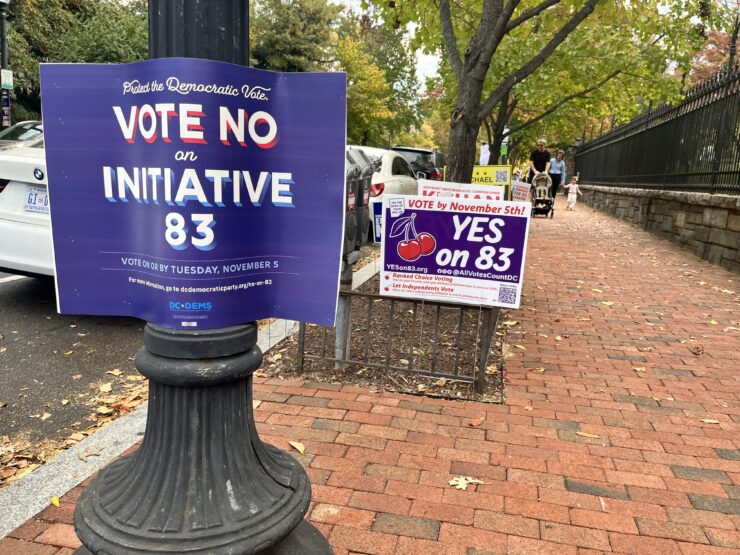
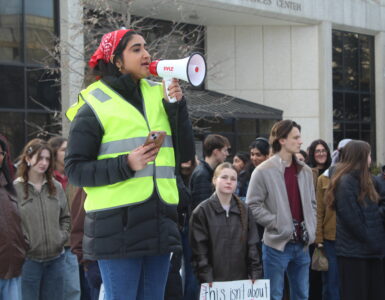












Add comment